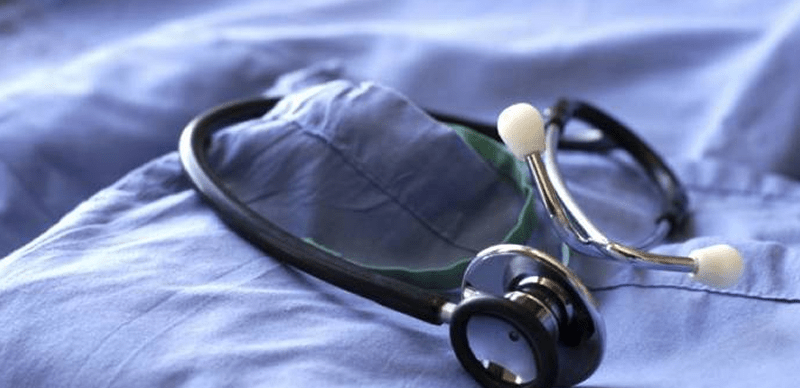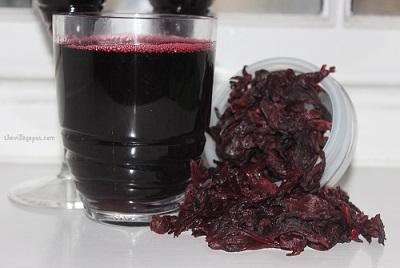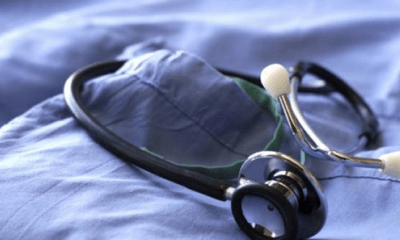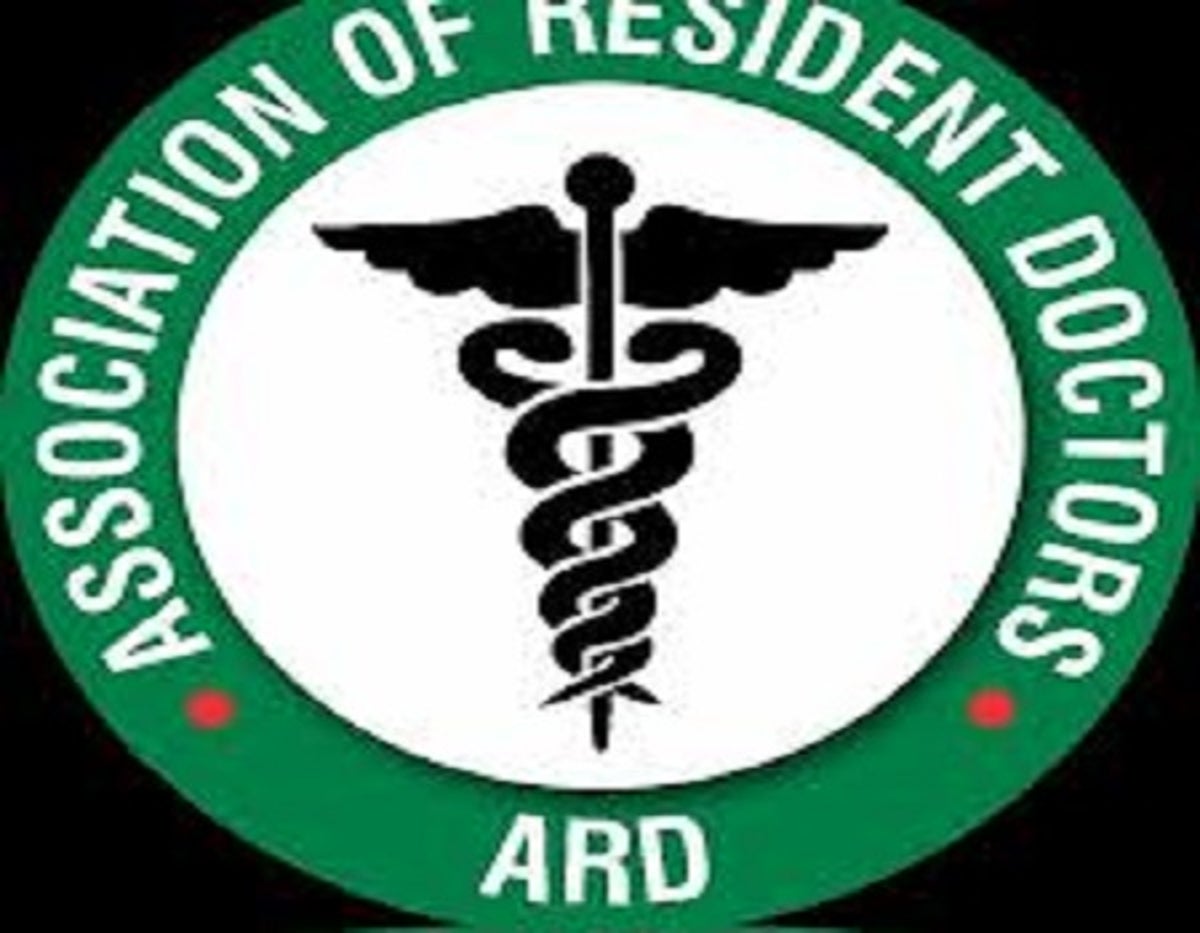Health
BREAKING: Trouble Looms As FG Declares Doctors’ Strike Illegal, To Implement No-work-no-pay
Published
12 months agoon
By
Editor
The Federal Government has warned members of the National Association of Resident Doctors to shelve their planned five-day warning strike, describing it as illegal.
The Minister of Labour and Employment, Chris Ngige, issued the warning today shortly after receiving a letter from the NARD executive notifying him of the impending industrial action, billed to commence midnight today, May 16, 2023
Reacting to the letter, dated May 16, 2023 and delivered to his office at about 5pm same day, Ngige said on receiving the letter, he contacted the Minister of Health, who informed him that a meeting has been scheduled by his office with the resident doctors on Wednesday, May 17.
He therefore advised the doctors to avail themselves of the opportunity for social dialogue with their employer, rather than embark on a warning strike, which is unknown to the law.
READ ALSO: Diaspora Health Workers Petition NASS Over Bill To Stop Doctors’ Migration
He said, “I will advise them to attend the meeting with the Minister of Health tomorrow. I will also advise them very strongly not to go on five-day warning strike. There is nothing like warning strike. A strike is a strike.
“If they want to take that risk, the options are there. It is their decision. They have the right to strike. You cannot deny them that right. But their employer has another right under Section 43 of the Trade Dispute Act, to withhold their pay for those five days.
“So, if the NARD has strike funds to pay their members for those five days, no problem. The Health Minister will instruct the teaching hospitals to employ adhoc people for those five days and they will use the money of the people who went on strike to pay the adhoc doctors. That is the ILO principles at decent work, especially for those rendering essential services. Lives should be protected. One of my sons is a resident doctor. I will advise him to go to work and sign the attendance register. The people seen at work are the ones to receive their pay. If you don’t work, there will be no pay.”
Commenting on the five demands of the doctors, Ngige said the Federal Government lacks the powers to compel the states to domesticate the Medical Residency Training Fund, since health is in the residual list, where both the federal and state governments have the powers to legislate.
READ ALSO: World Doctors Slam Reps Over Mandatory Service Bill
According to him, the job of the Federal Government is to make policy and where the states disagree, they are at liberty to make their own policy.
He added that the federal government cannot bully the states into domesticating the MRTF if they do not want to.
Regarding the issue of immediate payment of the MRTF to their members, he said it was appropriated in the 2023 budget, but has not been released, as the 2022 budget was still running, adding that those in 2022 have all been paid.
He denied the claim by NARD that the Federal Government did not pay minimum wage consequential adjustment arrears to their members, saying that all workers in the Education and Health Sectors, and even the defence agencies benefited from the adjustment.
He noted that the doctors cannot declare nationwide strike because some states were owing their members, pointing out that the federal government cannot also dabble into the issue, being a state matter.
READ ALSO: NMA, NERD, Others React To UK Restriction Of Doctors’ Migration
Similarly, he said the Federal Government as the Executive arm of government cannot intervene in the bill at the National Assembly to bond doctors for five years, as it is a private member’s bill.
According to him, any intervention by the executive on the matter impinges on the autonomy and independence of the legislative arm of government.
Ngige said although the bill has passed through first and second reading, he was sure it would be shot down at the public hearing, since the law prohibits forced labour.
He advised the doctors not to talk about 200 percent pay rise, as it was not feasible, adding that “besides all the government has done for doctors and other workers in the health sector, such as upward review of hazard allowances, the Nigeria Medical Association was already negotiating with the Federal Ministry of Health, National Salaries, Incomes and Wages Commission and the Presidential Committee on Salaries on pay rise for doctors.
“It is incongruous for student doctors to embark on strike when consultants training them were already negotiating with the Federal Government.”
You may like


BREAKING: MDCN Suspends Four Doctors From Medical Practice


No Work No Pay: ‘Whatever Happens Next Don’t Blame Us’, Doctors Tell Nigerians


Resident Doctors’ Strike Bites Harder As Hospitals Discharge Patients


Medical Doctors Advised To Collaborate With Alternative Medicine Practitioners


JUST IN: Resident Doctors Begin Indefinite Strike


Abia Doctors Suspend Indefinite Strike

By Silver Yeibake
Autism, commonly known as Autism Spectrum Disorder (ASD), is a neurodevelopmental disorder that affects communication, social interaction, and behavior. Autism is referred to as a spectrum condition since it can manifest in a variety of symptoms and abilities. While the actual cause of autism is unknown, evidence suggests that genetic and environmental factors interact to influence its development.
The risk factors include a sibling with autism, advanced age of parents, exposure to certain air pollutants and pesticides before birth, extreme prematurity, mothers with diabetes, immune system disorders or obesity, any difficulty with delivery leading to deprivation of oxygen to the baby’s brain, fever during pregnancy, lack of certain vitamins minerals during pregnancy, and certain genetic conditions, such as Down, fragile X, and Rett syndromes.
“Risk factors can not on their own cause a disease. However, they can increase the likelihood of that disease in a person.”
It is important to know that contrary to trending claims online, there is no scientific or medical evidence that vaccines or consumption of sugar are risk factors for autism.
READ ALSO: Kidney Stones: What You Need To Know
Autism is defined by difficulties in social interaction and communication. Individuals with autism may struggle to grasp social cues, maintain eye contact, and engage in typical back-and-forth conversations. Some people may also engage in meaningless, repetitive actions, such as hand-flapping or rocking, and have strong interests in specific areas.
It is essential to remember that autism is a lifelong diagnosis, but with early intervention and adequate care, people with autism can live fulfilling lives.
Autism treatment frequently includes behavioral therapy, speech therapy, occupational therapy, and social skills training. Each individual with autism is unique, thus interventions should be tailored to meet their personal needs and strengths.
In spite of the difficulties that autism can cause, many people with autism possess unique talents and abilities. Some people may succeed in fields such as music, art, mathematics, or programming, thus it is important for society to acknowledge and honor the qualities and achievements of people with autism.
In summary, autism is a complicated and diverse disorder that affects individuals in various ways. By raising autism knowledge, understanding, and acceptance, we can build a more inclusive society in which people with autism can thrive and attain their full potential.
Dr. Yeibake, Weriwoyingipre Silver.
Senior Registrar,
Faculty Of Pediatrics,
WACP
Health
Don Confirms ‘Zobo’ As Antihypertensive Therapy
Published
2 months agoon
March 10, 2024By
Editor
The Deputy Vice Chancellor, University of Nigeria Enugu Campus, UNEC, Prof. Daniel Nwachukwu, after research findings and clinical trials in both animals and human, has confirmed that Hibiscus Sabdariffa, popularly called ‘zobo’ drinks, has all the curative potentials as an antihypertensive therapy.
Nwachukwu, who is a Professor of Cardiovascular Physiology in the university, stated that the antihypertensive effectiveness of the Hibiscus Sabdariffa (zobo) was comparable to those of known antihypertensive drugs that are popular in the retail pharmacies, adding that zobo’s availability, cheapness and absence of side effects make it attractive as an alternative therapeutic agent in mind to moderate hypertensive subjects.
He however cautioned that care should be applied to avoid abuse in the consumption of Hibiscus Sabdariffa (zobo), adding that the therapy could interfere with some anti-malaria drugs while its high dose was also reported to have toxic effects on the liver and kidney.
READ ALSO: How Airline Pilots Fell Asleep Mid-flight – Safety Agency Reveals
Nwachukwu’s discoveries were contained his 201st Inaugural Lecture of the University of Nigeria with the topic “The Marriage Between the Cardiovascular System and Hibiscus Sabariffa: Let no One Put Asunder,” delivered at the moot court hall, Law faculty of the University of Nigeria, Enugu campus.
The DVC warned that Hibiscus Sabariffa consumption is not recommended for persons with low blood pressure because of its well established hypotensive action, advising that during combined therapy with antihypertensive drugs, the blood pressure, BP, must be carefully monitored.
He recommended that industrialists and investors should support large scale production of Hibiscus Sabariffa beverage and its distribution to rural communities in Nigeria, particularly since the raw materials (Hibiscus Sabariffa calyx and water) are cheap and readily available.
READ ALSO: Man Stabs Two Women To Death At A Mexico Varsity
According to Nwachukwu, “This lecture is intended to draw the public attention to our research efforts and unveiling the antihypertensive ability of Hibiscus Sabariffa which is called zobo in our common parlance. What we used for our studies was the same concentration as the locally produced zobo, and we found out that it exerted significant antihypertensive ability, in some cases even higher than the antihypertensive drugs and also did combination therapy with other antihypertensive drugs.
“What is significant is that this zobo is within us, it’s very cheap and it does not have any side effects compared to other antihypertensive agents. The raw material is just to buy zobo, prepare it under hygienic conditions, boil water and put it, sieve it and drink. It may have a sour taste but we do not encourage people to add things like pineapple or sugar in order to make it sweet, because once you do that, you are diluting or reducing its antihypertensive effectiveness.
“We have demonstrated it, both in animal studies and in humans. We are the first to do clinical trials, using mild to moderate antihypertensive Nigerians and we found it very useful. Some of the results show that one can actually use it and we equally saw that you can use it to prevent even diabetes from occurring because it reduces the rise in glucose level.”
READ ALSO: Adolescent Girls Face Risks Of Sexual Violence – UNICEF
Vice Chancellor of the University, Professor Charles Igwe while summarizing the lecture said that the lecture was in three dimensions; one on health grounds, another in academics and the third an economic value.
“Its economic in the sense that we can also begin to use what God has given us to make money. Maybe because God gave us everything in abundance in this country, we don’t recognize the simplest things God gave us in our environment. Therefore, what we are saying is that we should begin to, at all these pure water productions and incorporate zobo production so as to make money out of it.
“The university has made its contribution through our laboratories and it’s now left for the business community and the industries to come and buy into it and start widening it and make it very economic,” Igwe suggested.
Vanguard

By Silver Yeibake
Hi, did you know that Tuesday 12th March, 2024 is world Glaucoma day?Kindly avail yourself of this opportunity to learn about this important health issue as presented below:
Glaucoma is a dangerous eye disorder that damages the optic nerve, causing visual impairment or permanent blindness if not treated.
The optic nerve transmits visual information from the eye to the brain. Damage to this nerve might cause gradual visual loss that is not immediately obvious.
Worldwide, this disease affects 67 million people and contributes 6.7 million of blindness in this population. Glaucoma is the leading cause of blindness in the world.
The total number of cases is expected to increase to 111 million by 2040. Males are slightly more affected than females.
One of the basic causes of glaucoma is an increase in intraocular pressure (pressure within the eyeball), which can eventually damage the optic nerve (the nerve that makes seeing possible). This increase in pressure could be caused by an accumulation of aqueous humor, the fluid that nourishes the eye.
FROM THE AUTHOR: Food Poisoning: What You Need To Know
There are several forms of glaucoma, including open-angle glaucoma, angle-closure glaucoma, normal-tension glaucoma, and secondary glaucoma, each with unique characteristics and treatment choices.
Some of the risk factors for glaucoma include sustained elevation of intraocular pressure, family history of glaucoma, race (African, Asian), short-sightedness, long-sightedness, age over 50, previous eye injury or surgery, hypertension, diabetes mellitus, migraines, and prolonged steroid therapy.
Glaucoma symptoms may not appear until the problem has advanced sufficiently, therefore regular eye checks are essential for early detection. Blurred vision, eye pain, nausea, and light halos are some of the most frequent glaucoma symptoms. However, these symptoms might be mild or readily misinterpreted as other eye problems, emphasizing the significance of regular eye examinations.
Glaucoma treatment tries to reduce intraocular pressure and protect the optic nerve from further damage. This can be accomplished using a variety of approaches, including prescription eye drops, oral medicines, laser therapy, and surgical procedures. Treatment options are determined on the kind and severity of glaucoma, as well as personal characteristics such as overall health and medical history.
To summarize, glaucoma is a serious eye disorder that requires timely diagnosis and treatment to prevent irreversible vision loss. Regular eye examinations, early detection, and commitment to treatment plans are critical for protecting vision and eye health in glaucoma patients.
Thank you.
Dr. Yeibake, Weriwoyingipre Silver, a
Senior Registrar, Faculty Of Pediatrics, West Africa College of Physician (WACP), writes from Yenagoa, Bayelsa State.

DSTV Price Hike: Five Alternatives Nigerians Are Opting For

JUST IN: Oyo LG Polls: Hoodlums Attack Electoral Officials, Snatch Ballot Papers [PHOTO]
BREAKING: Scores Trapped As Building Collapses In Kano
Trending

 Entertainment4 days ago
Entertainment4 days agoBridesmaids’ Dance At Wedding Causes Stir On Social Media [VIDEO/PHOTOS]

 Metro4 days ago
Metro4 days agoVIDEO: ‘UNN Lecturer’ Caught Pants Down With Married Student

 News2 days ago
News2 days agoDrama! Supporters Of Yahaya Bello Perform Rituals to Prevent His Arrest By EFCC [Video]

 News2 days ago
News2 days agoVIDEO: Force PRO Orders Arrest Officers Caught On Video Bashing Driver’s Car

 Headline3 days ago
Headline3 days agoDrama As Women Fight Dirty, Breasts Fall Out During Spring Break Outing In US [PHOTOS/VIDEO]

 Entertainment2 days ago
Entertainment2 days agoNollywood Actor, Zulu Adigwe Is Dead

 Headline3 days ago
Headline3 days agoMeet 17-year-old Nigerian Who Won $3.5m Worth Of Scholarships From Harvard, 13 Other Foreign Universities

 Metro2 days ago
Metro2 days agoEdo Cultists Kill Rival In Daughter’s Presence, Abandon Getaway Car

 News4 days ago
News4 days agoIGP, Jonathan Disagree Over State Police

 News5 days ago
News5 days agoOutrage As Chinese Supermarket In Abuja Denies Nigerians Entry































